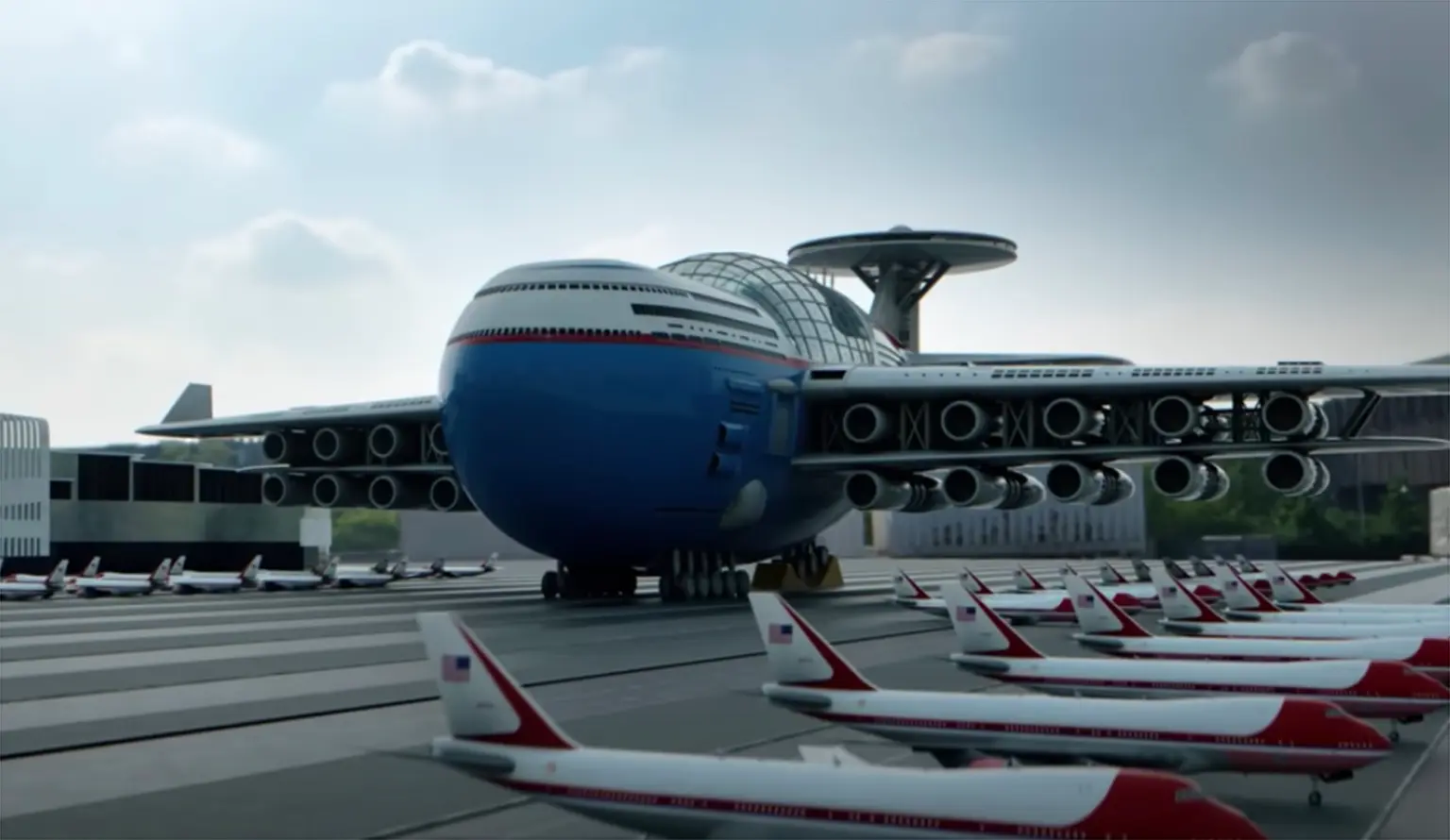Sky Cruise Hotel, a giant flying luxury hotel that never lands, is the next-gen hotel experience that seems straight out of a retro-futurism movie.
Designed by Tony Holmsten and reimagined by Hashem Al-Ghaili, the outlandish new flying hotel concept is a mash-up between an enormous cruise ship and a jumbo plane.
The hotel flies using 20 engines, AI, and nuclear power and can carry 5,000 passengers in an environment of absolute luxury.
The flying Sky Cruise Hotel was designed to feature luxurious accommodations and a massive event hall with 360-degree views of the ethers. There are also three viewing decks or balconies, where guests can admire the starry sky and natural phenomena such as the Aurora Borealis or enjoy the unparalleled view.
Hashem Al-Ghaili believes the Sky Cruise Hotel could be the future of travel, even though the concept is only theoretical. In a video rendering of the plane posted on YouTube, Al-Ghaili explains in detail how Sky Cruise will operate, its amenities, and how highly sophisticated technology will make the first flying smart hotel a reality.
It remains in the air forever – Sky Cruise Hotel
A nuclear reactor powers the Sky Cruise Hotel with unlimited energy. Twenty electric motors keep the hotel flying using only clean nuclear power and keeping the carbon footprint to a minimum. In theory, the hotel can stay in the air for years without touching the ground.
According to Al-Ghaili, Sky Cruise is an AI-piloted flying hotel that is designed never to land. Conventional airliners would ferry passengers to and from the Sky Cruise, and all running repairs would be carried out in-flight.
The state-of-the-art cockpit uses Artificial Intelligence to predict turbulence and prevent it using an anti-vibration technology that mimics noise cancellation technology. In this way, the giant flying hotel’s navigation system will use AI to predict wind patterns to offer a smooth sail.



Inside the giant flying hotel, there will be restaurants and a huge shopping mall, as well as gyms, theatres, and a swimming pool. Passengers will be allowed to organize wedding ceremonies, enjoying the impressive view.
Al-Ghaili says the futuristic hybrid between a plane and hotel is designed to run 24/7 and points out that AI and smart technologies will make Sky Cruise Hotel fully autonomous. “All this technology, and you still want pilots? I believe it will be fully autonomous,” he says.
A new Titanic
The ambitious project has already caused quite the stir on social media, with many users pointing out that the flying hotel lacks feasibility. Many users are expressing their concerns about the Sky Cruise Hotel, characterizing it as the new Titanic and saying that if an aircraft powered by a nuclear reactor crashed, it could destroy a city.
“Great idea putting a nuclear reactor in something that could malfunction and fall out of the sky,” one nervous user wrote on social media. At the same time, someone else commented, “I’m sure I would be able to afford a ticket for the lowest deck with no leg space and access to the lounge.”
“Those exposed elevators are a big nope for me. Uneven drag would also like a word on those. The engines look suspiciously like jet engines, fusion reaction is used as a magic future energy source, and your animation never bothered to raise the landing gear,” another user wrote on social media.
Right now, no further information has been released about this promising concept. However, the designer of the giant flying hotel believes that this is an innovation that will completely change the way we perceive the travel experience.



